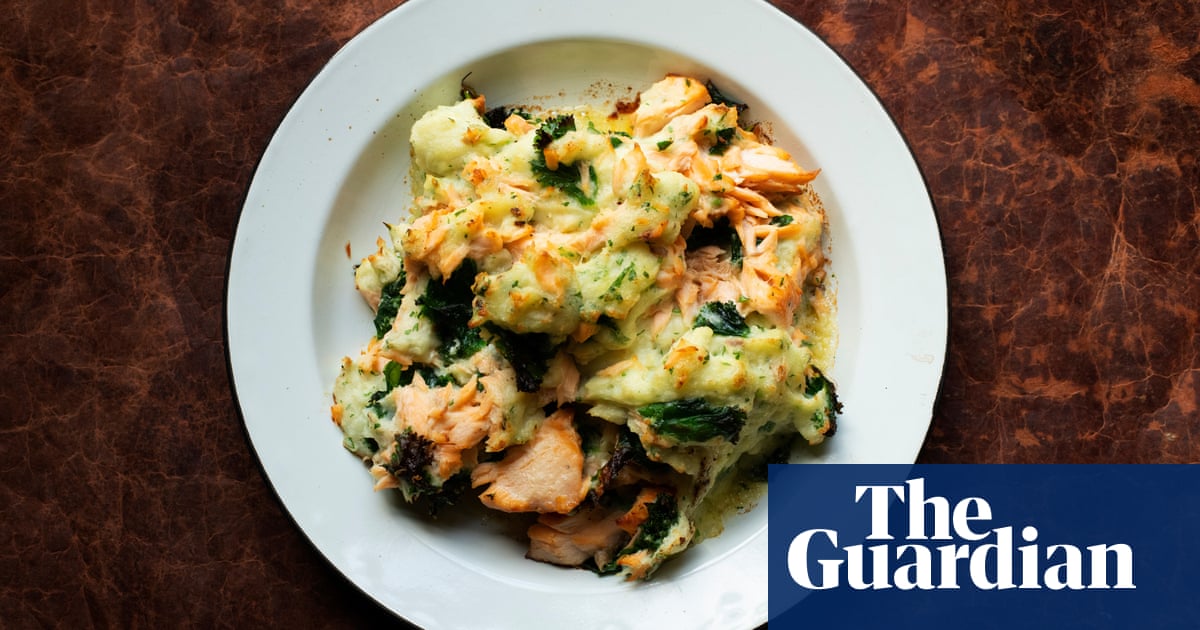Nigel Slater’s recipe for salmon, kale and potatoes
TruthLens AI Analysis
The article presents a straightforward recipe for a dish combining salmon, kale, and potatoes. It serves as a guide for readers who are interested in cooking healthy meals at home, specifically focusing on a recipe by Nigel Slater, a well-known food writer and chef. The inclusion of specific cooking instructions and ingredient lists indicates an intention to engage readers in the culinary process while promoting a nutritious meal option.
Intended Audience and Community Perception
This recipe targets home cooks, particularly those who appreciate simple yet healthy meals. It seeks to create a positive perception of cooking at home, emphasizing freshness and the enjoyment of preparing food. By sharing a recipe that can be easily followed, the article encourages readers to experiment with cooking, potentially fostering a community of health-conscious individuals who value home-cooked meals.
Potential Omissions and Transparency
The article does not seem to hide any significant issues or controversies; however, it could be perceived as overlooking certain dietary restrictions or preferences, such as vegetarian or gluten-free options. While it advocates for healthy eating, it does not address the broader context of food accessibility or the impact of food choices on the environment.
Manipulative Elements
There is little evidence of manipulation in the article. The purpose seems to be to inspire and educate rather than to persuade readers toward a particular agenda. The language used is inviting and informative, aimed at encouraging readers to try the recipe rather than pushing an underlying narrative.
Comparative Context
In comparison to other food articles, this one stands out for its simplicity and focus on a single recipe. It lacks the sensationalism often found in food trends or dietary debates. Instead, it embodies a more traditional approach to cooking, which may resonate well with certain demographics that prefer classic recipes over trendy culinary fads.
Societal Impact and Economic Considerations
The article might contribute to a rise in home cooking, which could positively affect the economy by supporting local produce markets and reducing reliance on takeout and processed foods. However, it is unlikely to have significant political or economic ramifications on a larger scale.
Supportive Community Demographics
This recipe is likely to appeal to individuals interested in healthy eating, including families, young adults, and culinary enthusiasts. It may resonate particularly well with communities that prioritize wellness and sustainability in their food choices.
Market Influence
While this recipe may not directly impact stock markets or global economies, it could influence consumer behavior toward healthier food products. Companies in the food industry, particularly those focused on health foods or sustainable practices, might benefit from the increase in home cooking trends.
Global Relevance
The article does not address global power dynamics directly, but its emphasis on healthy eating aligns with broader conversations about nutrition and public health. The growing interest in home cooking can be seen as a response to current global health challenges.
AI Involvement
There is no indication that artificial intelligence was used in crafting this recipe. The straightforward nature of the writing suggests human authorship, focusing on clarity and accessibility without the complexity that AI-generated content often exhibits.
In conclusion, the article presents a reliable recipe that aligns with current culinary trends towards health and sustainability. Its intention appears to be to inspire readers to cook at home, fostering a sense of community around healthy eating. Given its straightforward purpose and lack of manipulation, it can be considered a trustworthy source for those looking to enhance their culinary skills.
